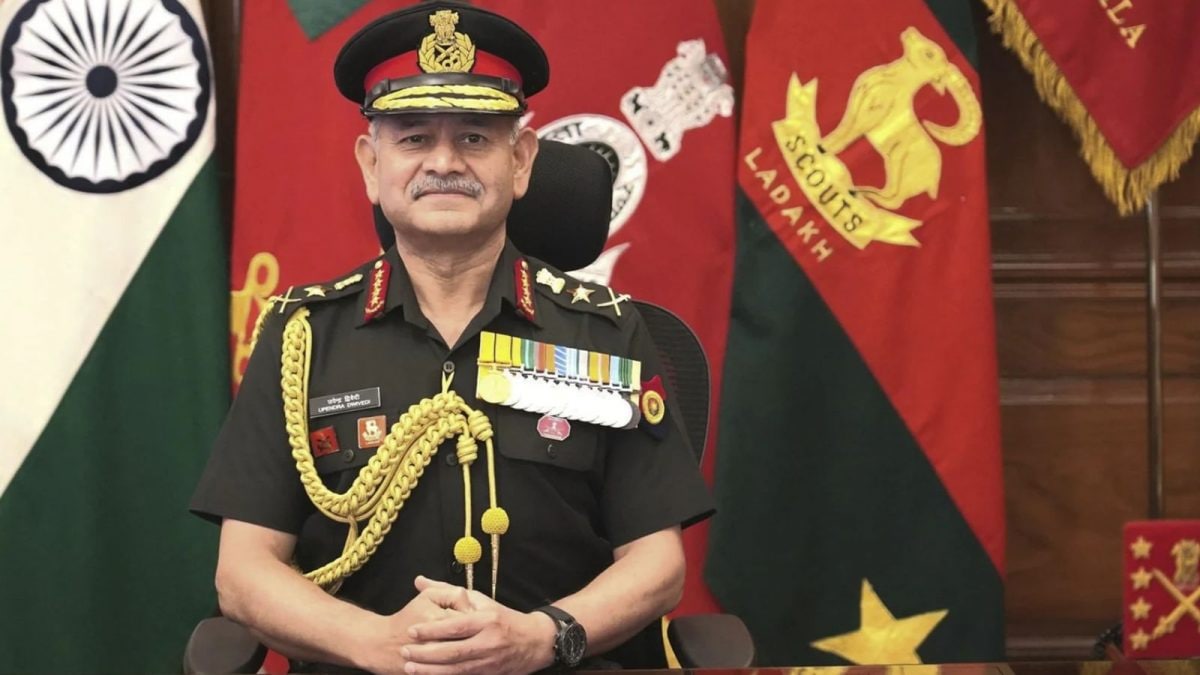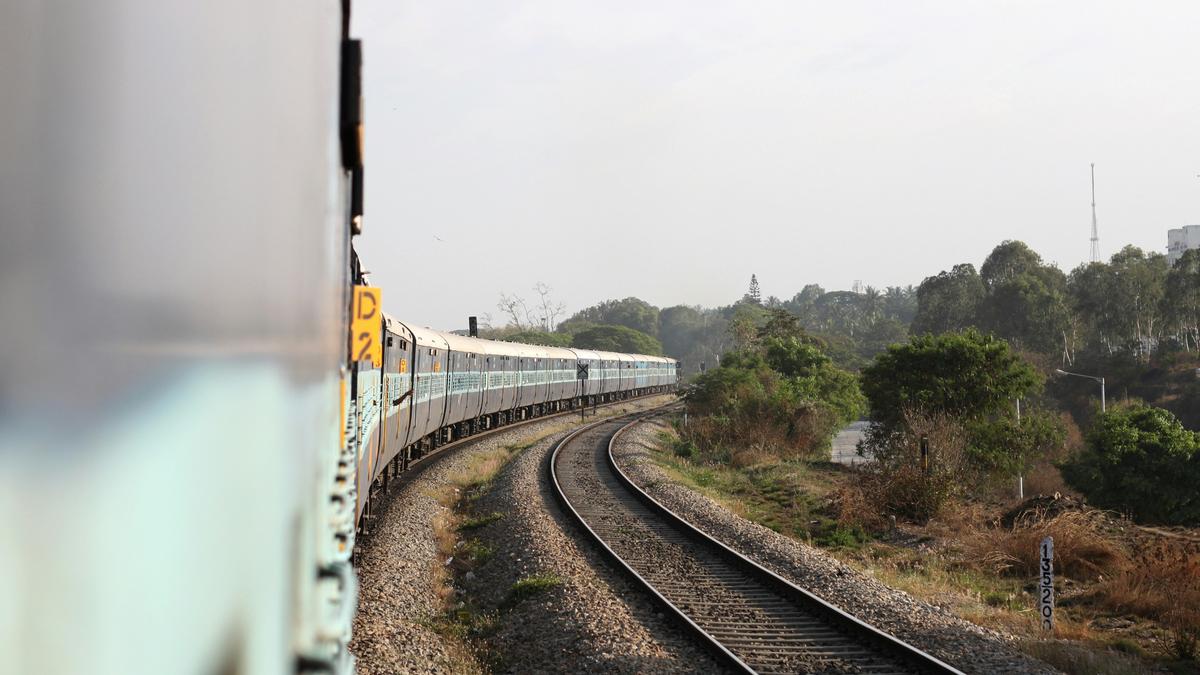ARTICLE AD BOX
Stressing that India’s Viksit Bharat goal cannot be achieved if we continue to teach colonial history to our children, celebrated mathematician Manjul Bhargava said it is essential to teach them the “correct” history, which includes making them aware of India’s past achievements in science and mathematics, provide them with the right conditions for the development of scientific temperament and expose them to multidisciplinary education.
Bhargava, a mathematics professor at Princeton University in the US, is one of the key brains behind the framing of the National Education Policy (NEP) and setting up of the Anusandhan National Research Foundation (ANRF), the two major policy interventions aimed at reforming and modernising education, besides promoting scientific research.
The winner of the 2014 Fields Medal, the highest honour in mathematics, Bhargava has lectured extensively on Indian mathematical traditions since ancient times and its contributions to the development of the subject over centuries.
 The winner of the 2014 Fields Medal, the highest honour in mathematics, Bhargava has lectured extensively on Indian mathematical traditions since ancient times and its contributions to the development of the subject over centuries.
The winner of the 2014 Fields Medal, the highest honour in mathematics, Bhargava has lectured extensively on Indian mathematical traditions since ancient times and its contributions to the development of the subject over centuries.
On Thursday, he delivered the keynote address at the two-day conference on South Asia’s Manuscript Traditions and Mathematical Contributions at the India International Centre (IIC) in New Delhi. The conference was organised jointly by IIC’s International Research Division and IIT-Bombay’s Centre for Traditional Indian Knowledge Systems and Skills. An exhibition on Indian contributions to mathematics was also inaugurated by External Affairs Minister S Jaishankar on the occasion.
Speaking to The Indian Express on the sidelines of the conference, Bhargava said it was extremely important for India to rediscover the achievements of ancient Indian mathematics, much of which remains underappreciated, and many of which got attributed to others.
“It is not about trying to put down or belittle other cultures or civilisations and glorify your own. Every civilisation has made important contributions to mathematics that they can be proud of. We must own ours and be proud of them. It acts as an inspiration to the current generation,” he said.
Maths and colonial history
“Pride, though important, is not the only reason. It is important to learn the origins and evolution of mathematics. That helps not only in a better understanding, but also increases the chances of making new breakthroughs. Mathematics is less about formulas or solutions, and more about the process, exploration and discovery. Currently, students in India mostly learn mathematics in its current form, the way it is now. There is little or no reference to its evolution. But we know that a lot of Indian mathematics, as also in other civilisations, has emerged from local contexts — from local music, art, linguistics, poetry. If students are made aware of how mathematics emerged from these local contexts, it becomes much more relatable to them. Learning becomes easier. The fear of numbers, or mathematics, that we see in a large proportion of students can be significantly reduced,” Bhargava added.
Story continues below this ad
“Also, it is extremely important to learn the correct history. Unfortunately, what is taught in India is largely colonial history. And we know this colonial history was created for a specific purpose. And much of it is not true. It is difficult to imagine that the goal of Viksit Bharat can be achieved if the intellectual capital of the country is built on colonial understanding,” he said.
Accomplishments of Indian mathematics
Bhargava said that while the origins of zero in India, both the number and the philosophical concept of nothingness, was fairly well-recognised now, many other accomplishments of Indian mathematics continued to be largely unknown even in India.
This, he said, included the 10-digit numeral system that we use, which continues to be often referred to as Arabic numerals in India, when it is very well established — even clearly acknowledged by ancient Arab mathematicians themselves — that the Arabs got this from India.
Negative numbers, fractions, sine and cosine functions, the exact formula for calculating the value of pi, general solutions to quadratic equations, infinite series are some of the many other fundamental contributions made by Indian mathematicians, he added.
Story continues below this ad
Many accomplishments that are attributed to others, including the Fibonacci series, Diophantine equations, Pell’s equation, Pascal’s triangle, and even the famous Pythagoras theorem, can legitimately be credited to Indian mathematicians, he said.
Bhargava said he was happy to see that the NEP and the introduction of new textbooks at the high-school level were correcting colonial history, and acknowledging the contributions of traditional knowledge systems.
“I hope that in the next five years or so, students will become as familiar with names like Pingala, Madhava, Virahanka, Gopala or Hemchandra (ancient Indian mathematicians) as they are with Pythagoras or Euclid,” he said.
Talking about NEP, he added, “It is a very serious attempt at moving pedagogy from rote-based learning to discussion and activity-based. It emphasises on exploration and discovery, and on crucial 21st century skills like communication. I am extremely happy that the government has introduced these changes.”
Story continues below this ad
The other important thing about the NEP, he said, was the elimination of segregation of subjects in different streams.
“This is possibly the most important intervention in education in a very long time. Students are not bound to pursue either a science stream or humanities or commerce. They can study whatever subjects they are passionate about. The importance of interdisciplinary and multidisciplinary study cannot be overemphasised. For example, it is a mistake to consider science as just analysis. A large part of doing science is about creativity. And creativity is best developed through art, music, poetry or language. It is not surprising that a very high proportion of famous scientists, including Nobel Prize winning ones, have had more than just a cursory interest and knowledge of arts. Many of them have been accomplished artists,” he said.
A trained tabla player and proficient in Sanskrit, Bhargava often lectures on the connections between mathematics, music and language. “The study of history or language or poetry gives a better perspective of science. It is enriching,” he said.
On the “Indian tradition of segregating the subjects”, he said, “That is not the best way for all-round development of the student. We have to ensure that the other side of the brain also gets developed.”
Story continues below this ad
Stating that he was “very happy” to see efforts on strengthening scientific research in the country, Bhargava said, “The ANRF is a very positive step. Students have to be exposed to research methods at an early stage, at the undergraduate-level itself. It opens up their mind, makes them receptive to new ideas, and brings scientific rigour in their approach. At the society level, it helps in spreading scientific temperament, which is so vital.”
“There are so many positive things that are happening in education right now. Though a lot more still needs to be done, we are moving in the right direction. Ten years ago, when I was approached to contribute to the drafting of NEP and later ANRF, I was a bit sceptical. But I have been pleasantly surprised to see the commitment to these reforms. The full impact of these interventions will become evident only after some time, but I think we have made a good start. A vision for Viksit Bharat in 2047 is a very good goal to have. And it can be attained only through a critical mass of scientifically minded individuals who have the ability to deliver rapid economic growth,” Bhargava said.



.png)
.png)
.png)
























 English (US) ·
English (US) ·